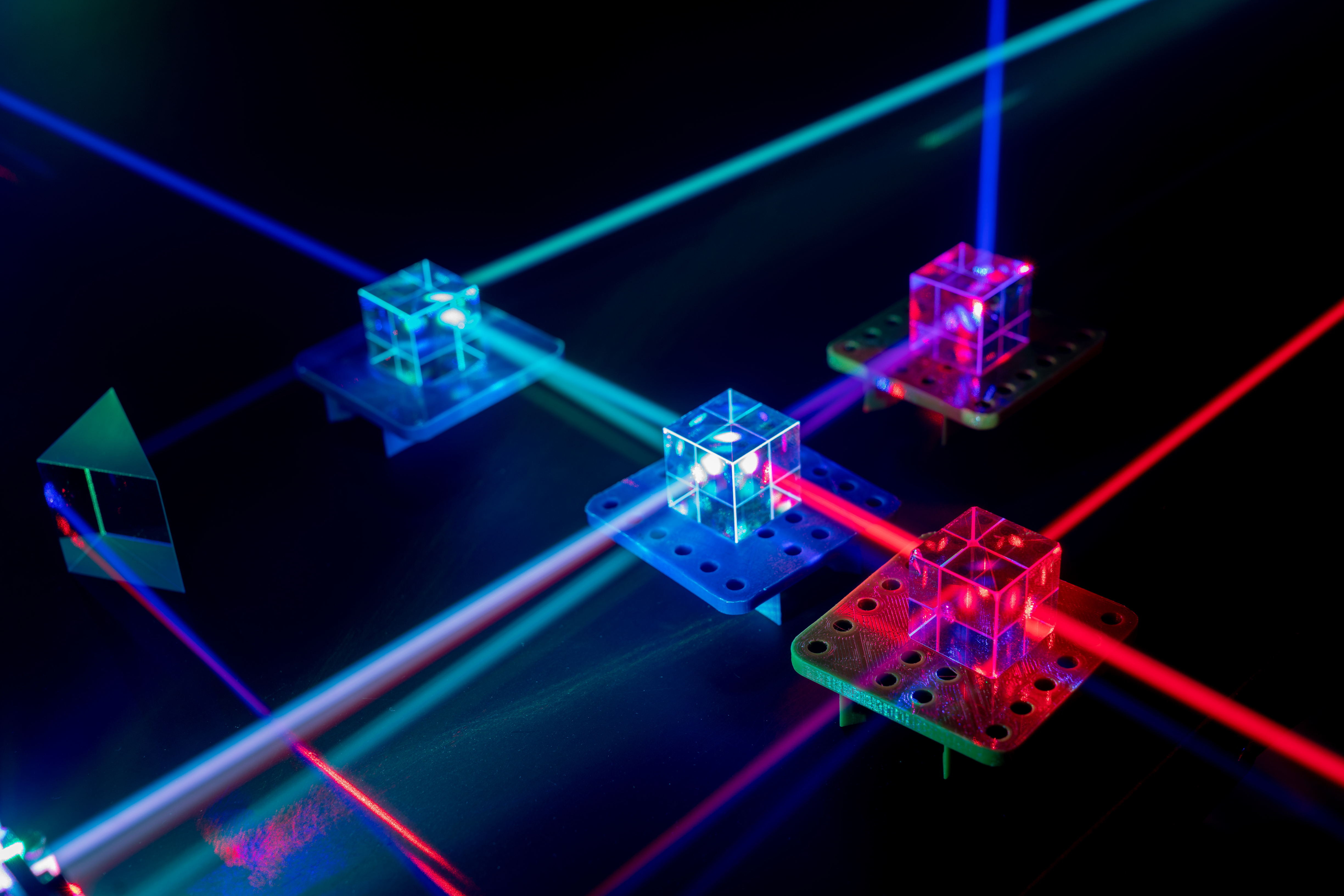Scientists Build Highly Scalable Quantum Computer Out of Light
A new way to build a universal quantum computer.

A team of international scientists from the U.S., Australia and Japan has made a large-scale quantum processor prototype made of laser light. The design announced yesterday has been created over a period of 10 years and allows for extreme scalability.
A New Way to Build a Universal Quantum Computer
The scientists behind the project noted in their research paper that the development of a practical quantum computer requires universality, scalability and fault tolerance. It’s not clear if today’s designs can scale to extremely large sizes (high numbers of qubits and other quantum computing components) in the future.
The scientists’ new approach has built-in extreme scalability because the processor, which is called a clustered state, is made out of light. A clustered state is a large collection of entangled quantum components that performs quantum computations when measured a certain way, according to the scientists.
“To be useful for real-world problems, a cluster state must be both large enough and have the right entanglement structure. In the two decades since they were proposed, all previous demonstrations of cluster states have failed on one or both of these counts," Dr. Nicolas Menicucci, Chief Investigator at the Centre for Quantum Computation and Communication Technology (CQC2T) at RMIT University in Melbourne, said in a statement accompanying the announcement.
"Ours is the first ever to succeed at both.”
In order to make the clustered state, the scientists used custom-designed crystals to convert laser light into a type of quantum light called “squeezed light.” This light was then weaved into a cluster state by a network of mirrors, beamsplitters and optical fibers.
The levels of 'squeezing' are currently too low to solve any practical problems, but the design should allow for the achievement of state-of-the-art squeezing levels.
Get Tom's Hardware's best news and in-depth reviews, straight to your inbox.
Dr. Hidehiro Yonezawa, Chief Investigator, CQC2T at UNSW Canberra, said that the design enables scalable universal quantum computation and experiments with the design confirm this fact.
With Quantum Supremacy Achieved, What’s Next?
Quantum computers are probably still many years away from being able to solve major practical problems. However, we’ve recently seen that Google’s quantum computer was able to achieve quantum supremacy, an important milestone necessary before we could think of solving larger problems with quantum computers.
Now that we know that quantum computers can be better at solving certain tasks than classical computers, we should start seeing many more quantum computing projects that implement different technologies in an attempt to be the first quantum computer that can solve larger real-world problems.
Lucian Armasu is a Contributing Writer for Tom's Hardware US. He covers software news and the issues surrounding privacy and security.